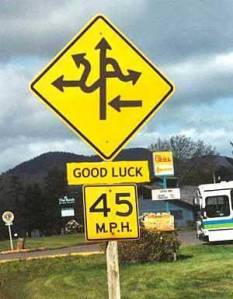
I invited my friend Veron, the author of exploretruth.com, as a guest writer here. He’s not just a talented writer, he’s an insightful man who translates vital concepts we should take in and absorb.
Enjoy this honest, and helpful contribution about what he has done when prayer has become difficult. This type of prayer exercise can be done when it’s hard to be verbal, or just to freshen up your time alone with God. Give it a try. I’ve enjoyed the practice too.
Writing: An Act of Prayer?
-Veron Graham
They swarm like drunken bees. Disjointed and restless having lost their motivation and focus. With thoughtful pause I point the pen, the swarm now threatening to coalesce around a single thought, emotion, or heart felt longing; like the only drop of honey in a dry expanse of nothingness and silence.
Thoughts sometimes struggle to shine in our confused states of darkness. Of doubt. Like one candle in the dark, I’ve struggled to whisper into this darkness. And if you’re anything like me you have as well.
Some days go better for me than others, but mostly I’ve struggled to utter words to a God who at times I didn’t fully understand, and just reverted to mumbling variations of childhood prayers that allowed me the comfort of remaining on the surface, never plunging the depths of truth and genuine connection with God.
True prayer has always been hard for me. I’ve only now begun to see how revolutionary an act of faith really talking to God truly is. To be quite honest, as of late, I haven’t really been praying. Not in the traditional sense anyway. I’ve been suffering some guilt about this, and the fact that Ive recently begun writing is the only balm that has sustained me, and given me a possibly different perspective on the subject of prayer.
So what exactly is Prayer?
Wikipedia defines prayer as:
“The act of addressing a god or spirit for the purpose of worship or petition.[1] Specific forms of this may include praise, requesting guidance or assistance, confessing sins, as an act of reparation or an expression of one’s thoughts and emotions. The words used in prayer may take the form of intercession, a hymn, incantation, words of gratitude, or a spontaneous utterance in the person’s praying words. Praying can be done in public, as a group, or in private”.
It appears that there can be more than one way to express thoughts and emotions. More than one means to reveal what burns in our hearts. And thats comforting. Like a million varying classifications of flowers raised heavenward to their life source, it seems to me, that we to can raise our voice, hands, or lives in whatever medium speaks, and opens our hearts to Divine wisdom.
So Why is Prayer so Hard for some?
In a world full of distractions and complexity, I’ve realized that focusing the mind and concretizing my thoughts can be difficult, far less for the thoughts I have towards God. Make no mistake, I possess the yearning to connect to the divine, and desire to experience more of a real connection. To wrestle with the unknowns in my life. But sometimes the faith feat of articulating and communicating my thoughts to a less than tangible concept of God can seem abstract, prove difficult, and sometimes feel pointless.
As of late, I have found that the act of writing my spiritual journey, to be a powerful act of reflection, contemplation, meditation, prayer, and maybe even praise. Grappling with the bedrock of human existence, the why’s of life, the unresolved questions I have, doubts, and fears, all can be given proper voice, in the visible form of the written word.
Our prayers, becoming statements of faith, and even of doubt. Lord, I believe, and please help my unbelief. All nakedly and honestly expressed on paper, where we can both remember from where we’ve come, where we are, and petition to participate in where we understand God to be going. It allows us to plot our stages of growth, bolstering and transforming theory into a real, tangible and experiential spiritual life.
“I love the LORD, because he hath heard my voice and my supplications. – Psalms 116:1”
Find what works for you!
Writing has allowed me to penetrate the facade that much of life’s distractions can cultivate. For you it may be another creative outlet. I was talking to my mother, who happened to just start a womans small group at her home. She was describing to me what she called a prayer basket. She creatively collects all the things that she needs in order to pray or spiritually connect with God. “I have my prayer journal in there, along with a pack of cookies”, she said, smiling. I imagine each basket will be as unique as the thumbprints of the ladies in her group. I think that if nature is any indication of Gods creativity, it leads me to appreciate the plethora of genuine expressions and communication styles from his children.
Thank you, Veron. Many more great things by Veron are here.






